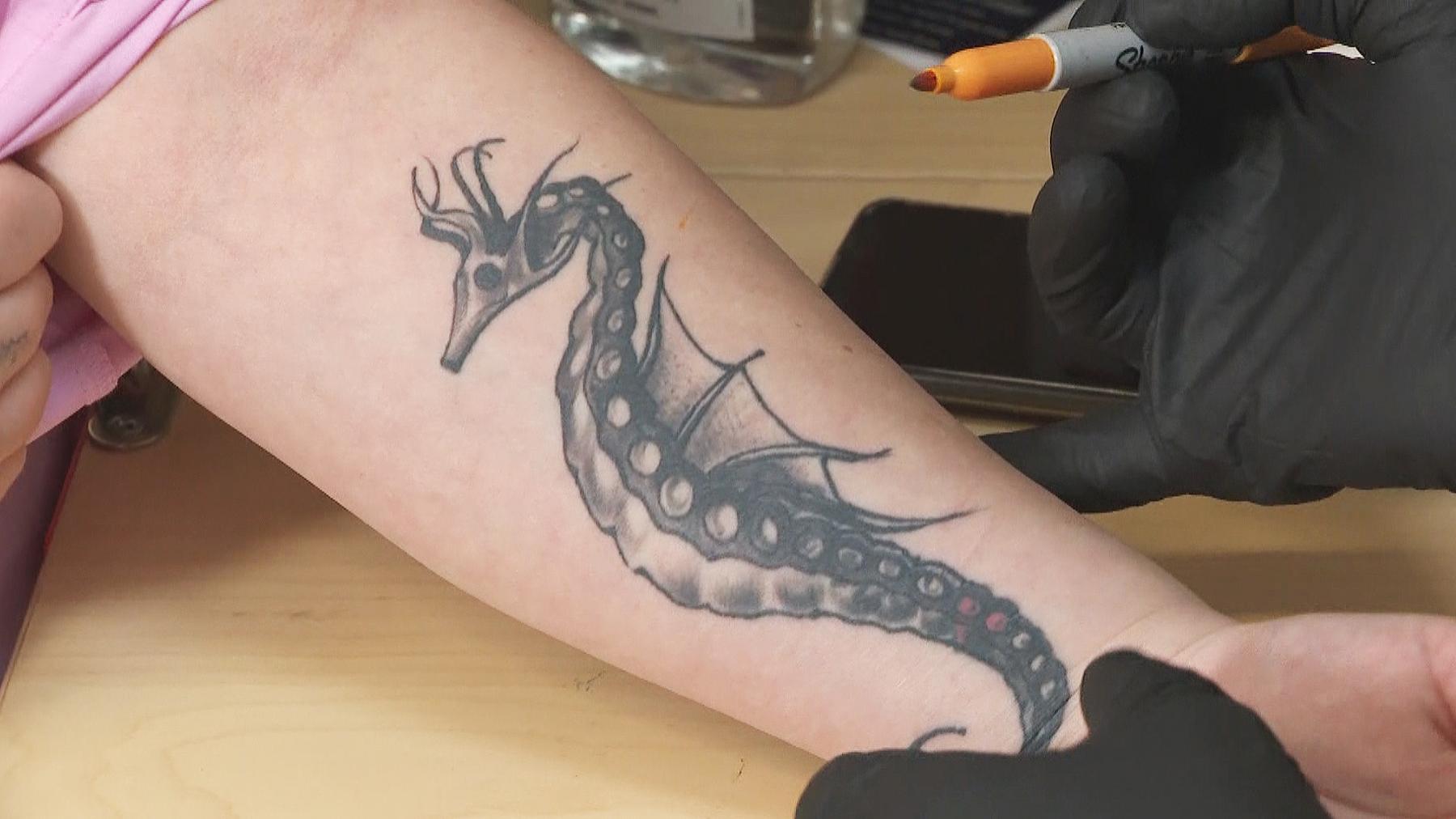'My tattoo gave me my freedom back'
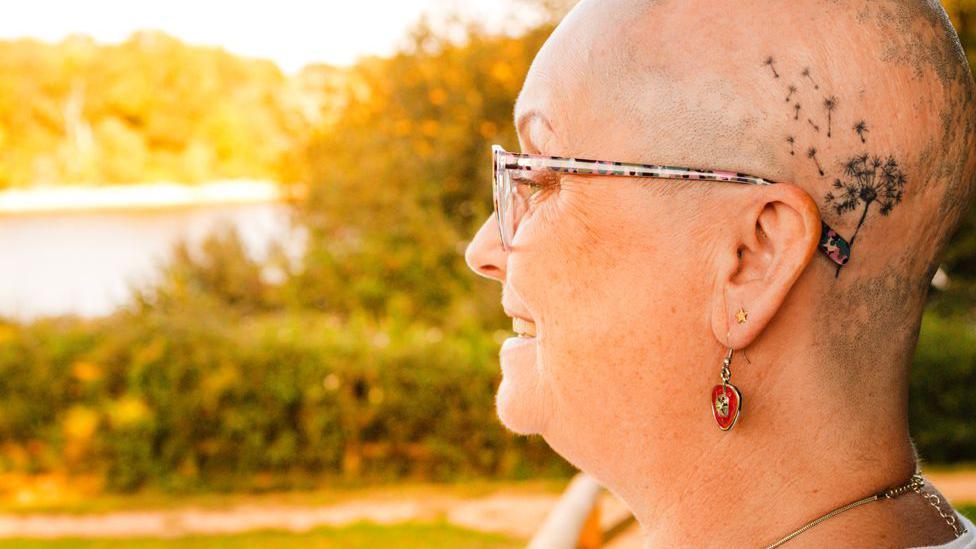
More people are turning to 'ink therapy' to overcome body image issues
- Published
Tattoos have been a staple in human culture for thousands of years, but their popularity has soared in recent decades.
Stereotypes of tattoos being only for "inked criminals" and "the unemployed" have gradually become obsolete as body art becomes more mainstream, with everyone from professionals to celebrities proudly displaying their designs.
But despite their prevalence, tattoos run more than just skin deep. They can often provide a glimpse into the psyche of the wearer.
It has increasingly become a way for people to "reclaim" their bodies and overcome insecurities, trauma, or a negative body-image by transforming their skin into art.
Warning: This feature contains some potentially distressing images.
'I felt like a freak'
In 2015, 57-year-old Mandy Nicolson was diagnosed with scarring alopecia.
Also called cicatricial alopecia, the condition causes permanent hair loss after the immune system attacks and destroys the follicles.
"As a woman you take great pride in your hair," said Ms Nicolson, who lives in West Coker, Somerset.
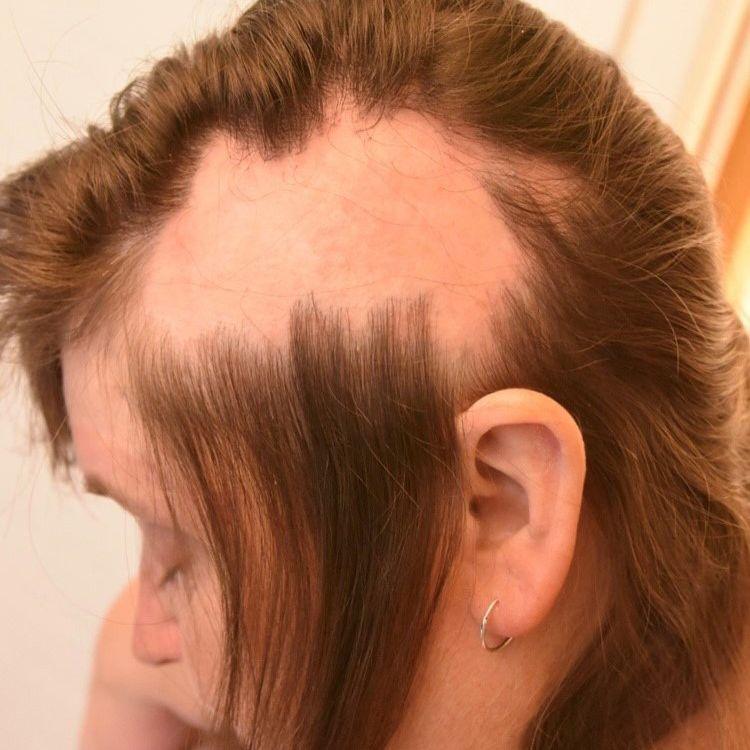
Ms Nicolson said she felt "self-conscious, scared and embarrassed" when she began losing her hair
"It's what women are meant to look like. They're meant to fit in this box with long beautiful hair, but that's not me."
Ms Nicolson said for a long time she felt "trapped" under the pressure of wearing headscarves to cover her bald spots, or never leaving the house without makeup after her eyebrow hairs began to fall out.
In 2021, Ms Nicolson decided to "take back control" by getting a tattoo of a dandelion clock in the place her alopecia first began- to represent her hair "flying away".
"I can't control what's happened to my hair, it's gone and it's never coming back," Ms Nicolson said.
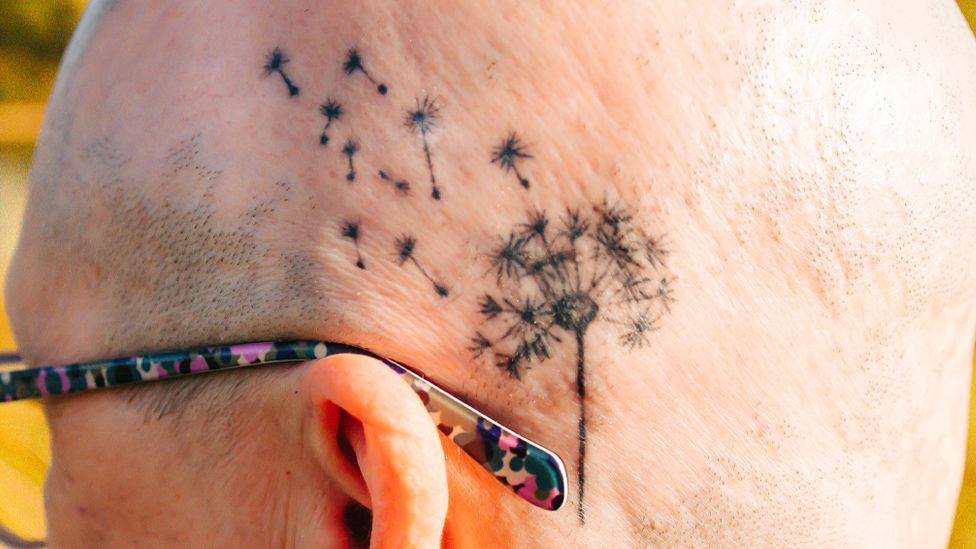
Ms Nicolson says since getting the tattoo her confidence has "skyrocketed", with strangers approaching her to compliment her ink
"It took me a long time to accept that, I was distraught. But then I realised I can't do anything about it so I might as well embrace it."
Ms Nicolson says the tattoo helped her to "redefine femininity" into meaning bravery, boldness and resilience.
She said: "I'm a woman, why can't I look how I want to? Why should I conform to a box of what people think I should look like?
"Now I proudly hold my head up. My tattoo gave me my freedom back."
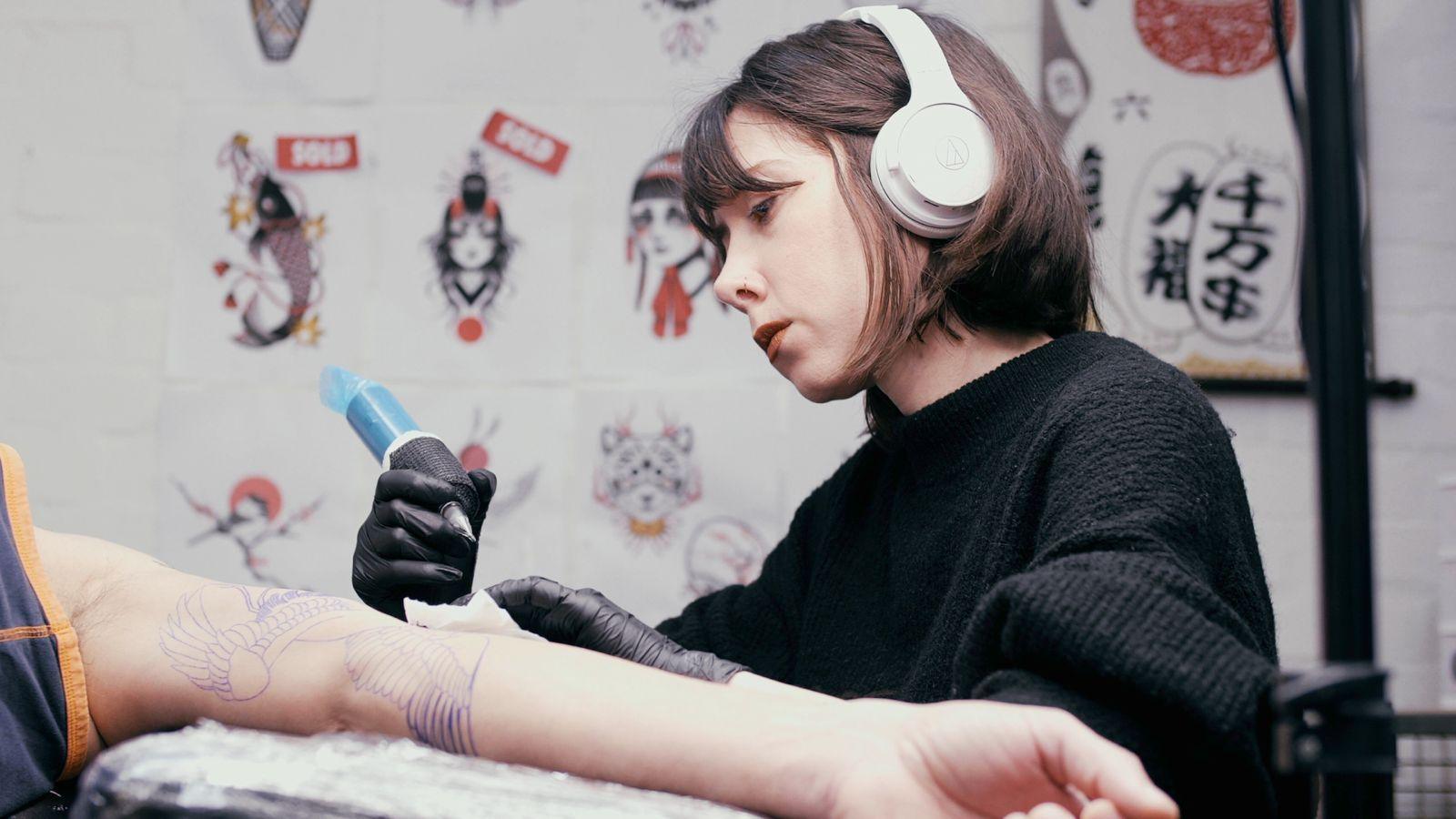
Ms Dominguez says "helping people get their confidence back is so rewarding"
Luiza Machado Dias Dominguez, a tattoo artist at No Regrets studio in Bristol, has seen many clients come to her seeking a confidence boost.
"Whenever people come in with an insecurity they're usually covering them, even if it's hot outside," she said.
"But once the tattoo is finished you can see from their face that you've completely changed their lives.
"They can't wait to show it off, they are so proud of it. I've had a few of my clients hugging me and crying. I feel so privileged to be a part of that process."
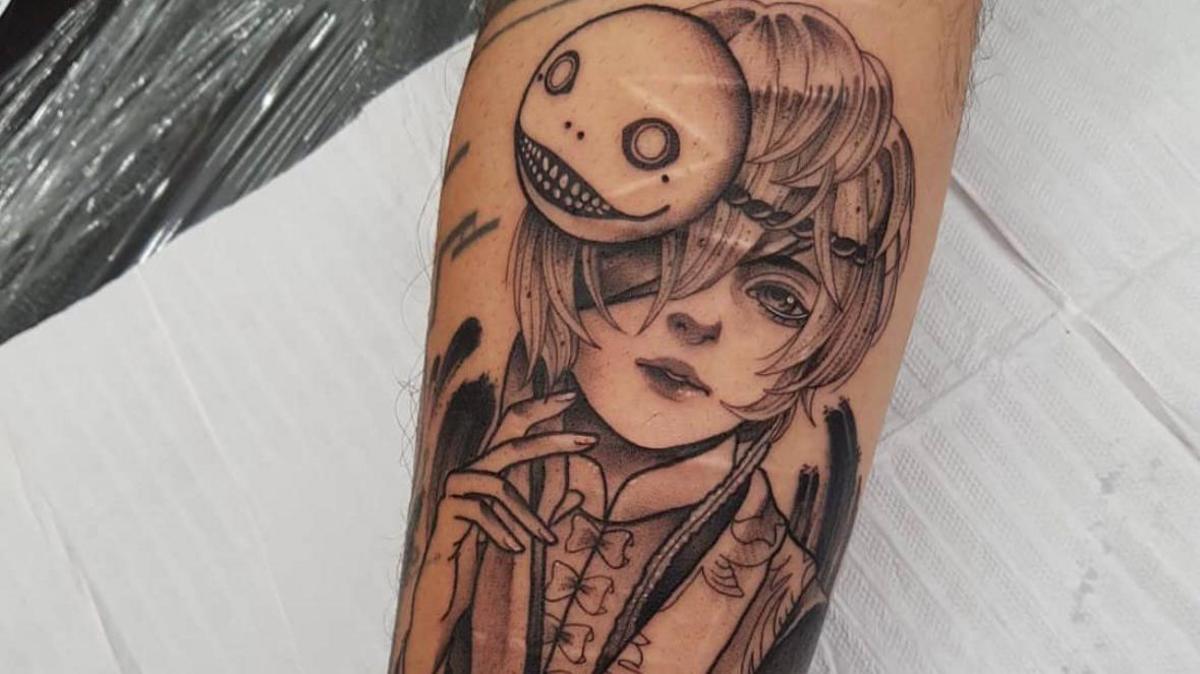
Ms Dominguez has covered many scars with elaborate tattoo designs
The artist, who has been tattooing for eight years, says getting inked is "more than just an accessory".
"It's like you suddenly have this choice to show off who you really are, or who you want to be," she said.
When tattooing over a burn or scar, Ms Dominguez advised first checking with your doctor on the condition of the skin to avoid the ink bleeding or the needle reopening healing tissue.
'Ink therapy'
But rushing out to get a tattoo if you're unhappy with a part of your body is not a recommended way of dealing with self-esteem issues in the long run.
Aleksandra Pamphlett, a psychotherapist specialising in body image, says although tattoos can be used as a powerful tool to mark milestones along the "self-healing journey", they should not become an avoidance strategy.
“It can’t be just a physical thing, it's psychological," she says.
"If you don’t like your scars, or your stretch marks, there is a subconscious reason why you can’t accept them.
“People see a huge imperfection in their eyes and they feel the need to hide.
"You’re keeping trauma within that scar, and covering it won't make it go away."
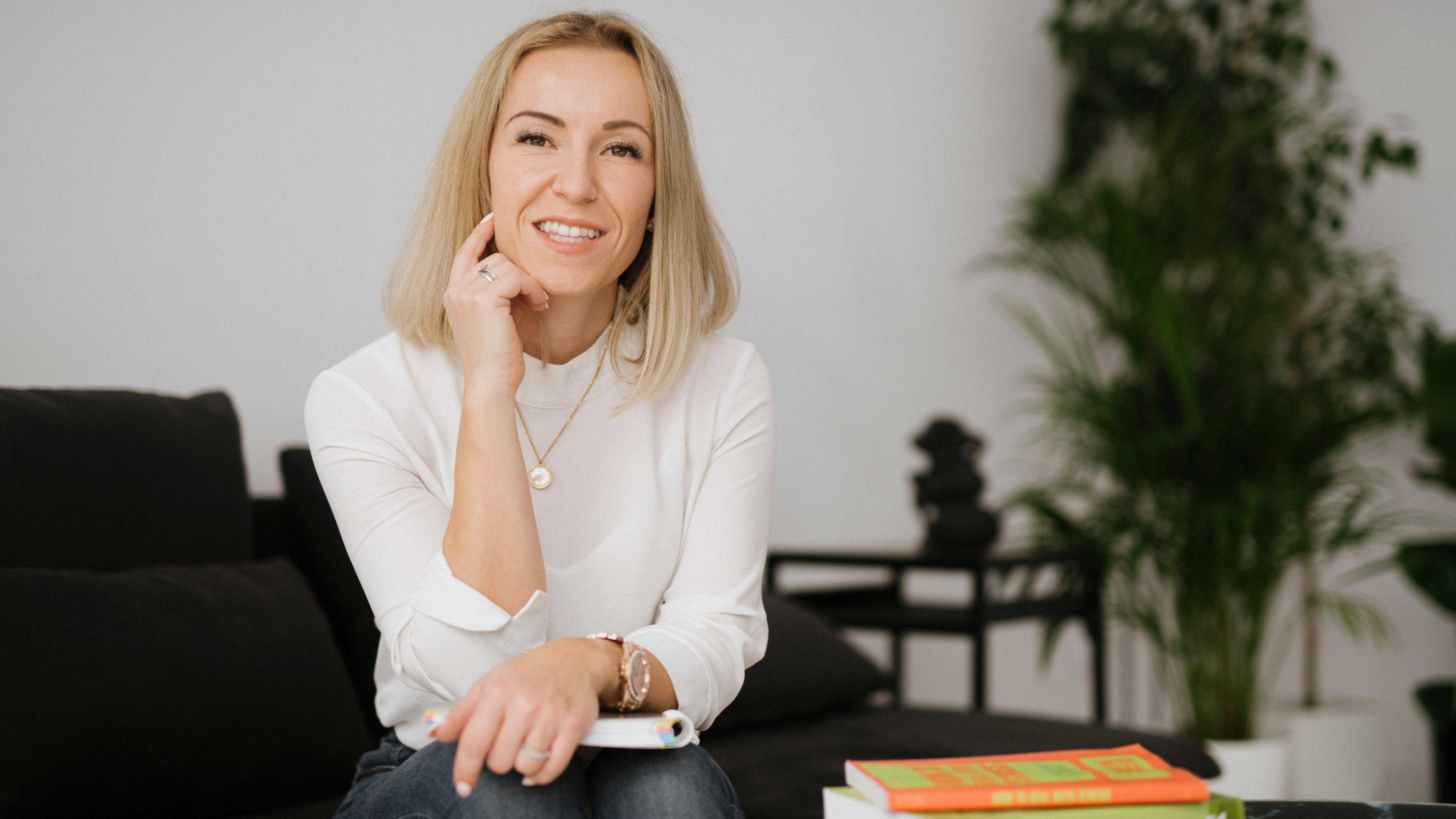
Aleksandra Pamphlett says tattoos can help people mark milestones in their "self-healing journey"
However, Ms Pamplett says she has seen many clients use tattoos as a way to "take back power" after battling chronic illness, mental health struggles, or trauma in their past.
“It’s very often about those invisible scars," she said.
"I’ve seen women who have decided to get a tattoo after being abused or assaulted, to feel like they can reclaim their body- they own it, it's their choice, they’re in control."
Another of her clients covered a large discoloured scar on her neck from a skin graft to make her feel "less exposed".
"After getting a tattoo, she didn’t mind people looking at her anymore," Ms Pamphlett said.
"She was completely comfortable drawing that attention to herself, because it was on her terms."
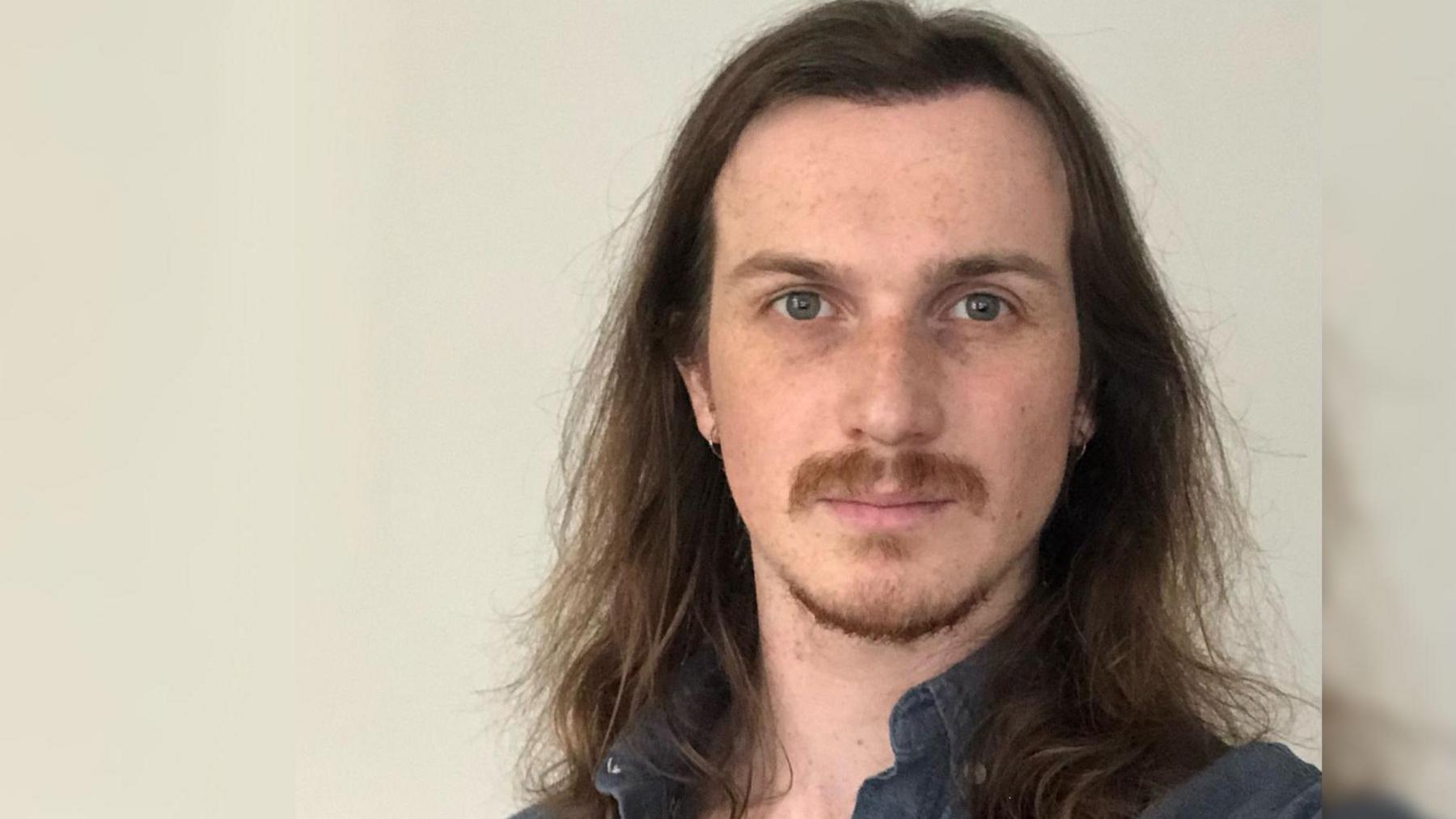
Kieran Moulton's research focuses on self-inflicted scars, burns, accidents, childhood injuries and surgical scars
Kieran Moulton, a PhD student at the University of the West of England, has conducted multiple studies into tattooing as a method of "camouflaging or decorating" scars.
He said one man, who was left with scarring after accidentally putting his hand through a window, had gotten shards of glass tattooed around the scar to represent how it was caused.
"A lot of the time, acquiring a scar might be something that's completely out of your control," said Mr Moulton.
"So you almost tattoo it to make it your own, to take back that part of your body."
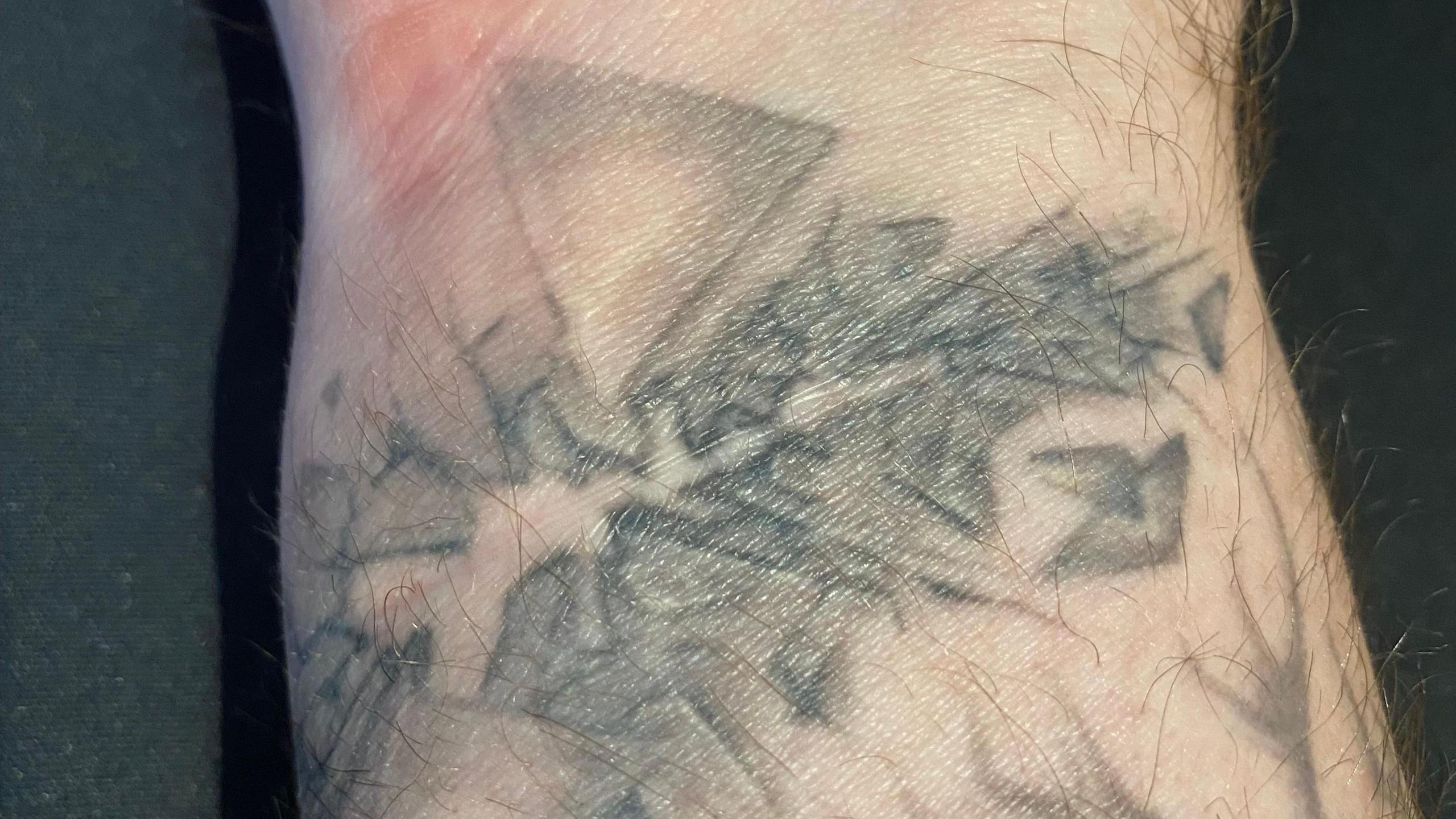
The tattooed shards of glass told the story of how the scar was obtained
While Mr Moulton's studies focused on people who had chosen to tattoo their scars, he added "there were just as many people out there who loved their scars", and "wouldn't change them for the world".
"As much as our stories are told through tattoos, they're also told through our scars," Mr Moulton continued.
"They are a part of our history, our sense of self, and in a way they represent us as much as a meaningful tattoo design would."
If you are affected by any of these issues please contact the Samaritans on their free helpline 116 123, or visit the website, external.
Get in touch
Tell us which stories we should cover in Bristol
Follow BBC Bristol on Facebook, external, X, external and Instagram, external. Send your story ideas to us on email or via WhatsApp on 0800 313 4630.
- Published5 March 2020
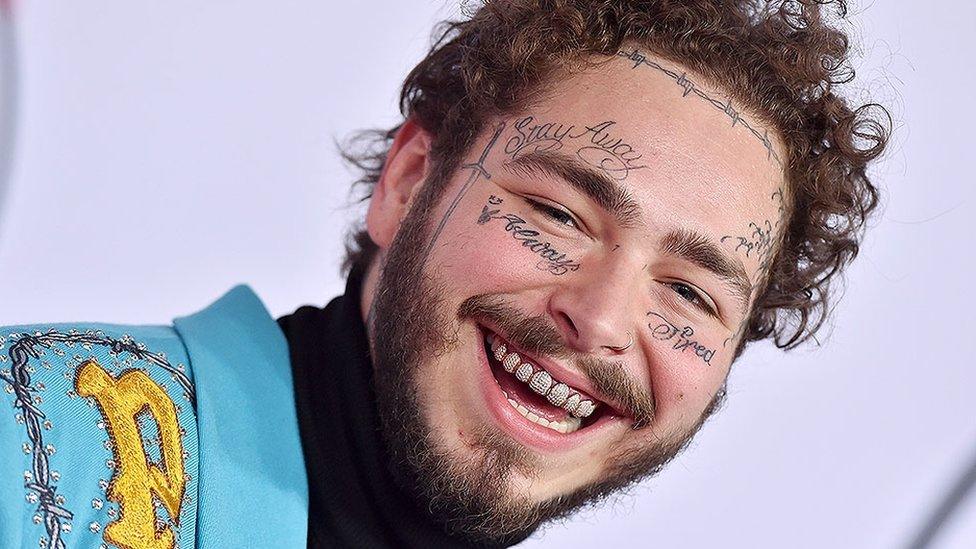
- Published16 August 2022
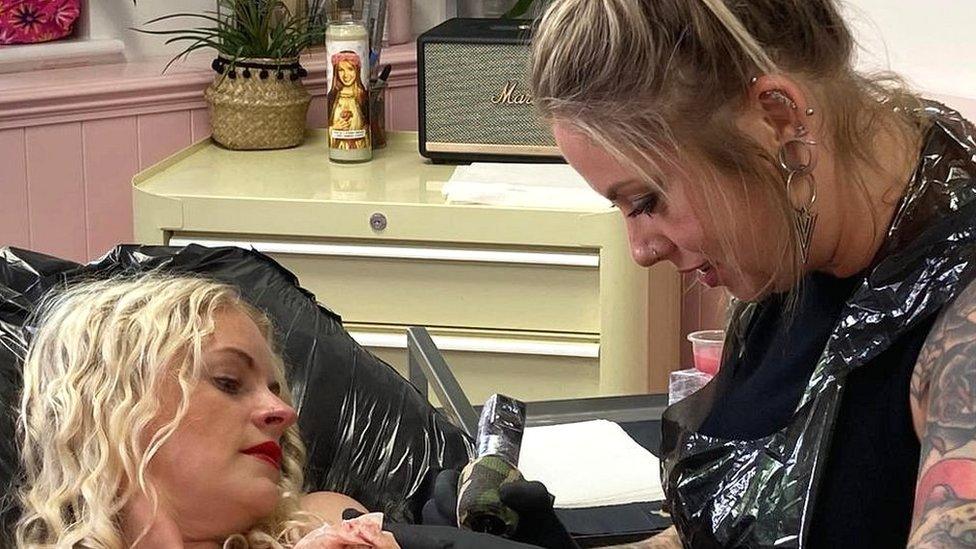
- Published25 July 2024
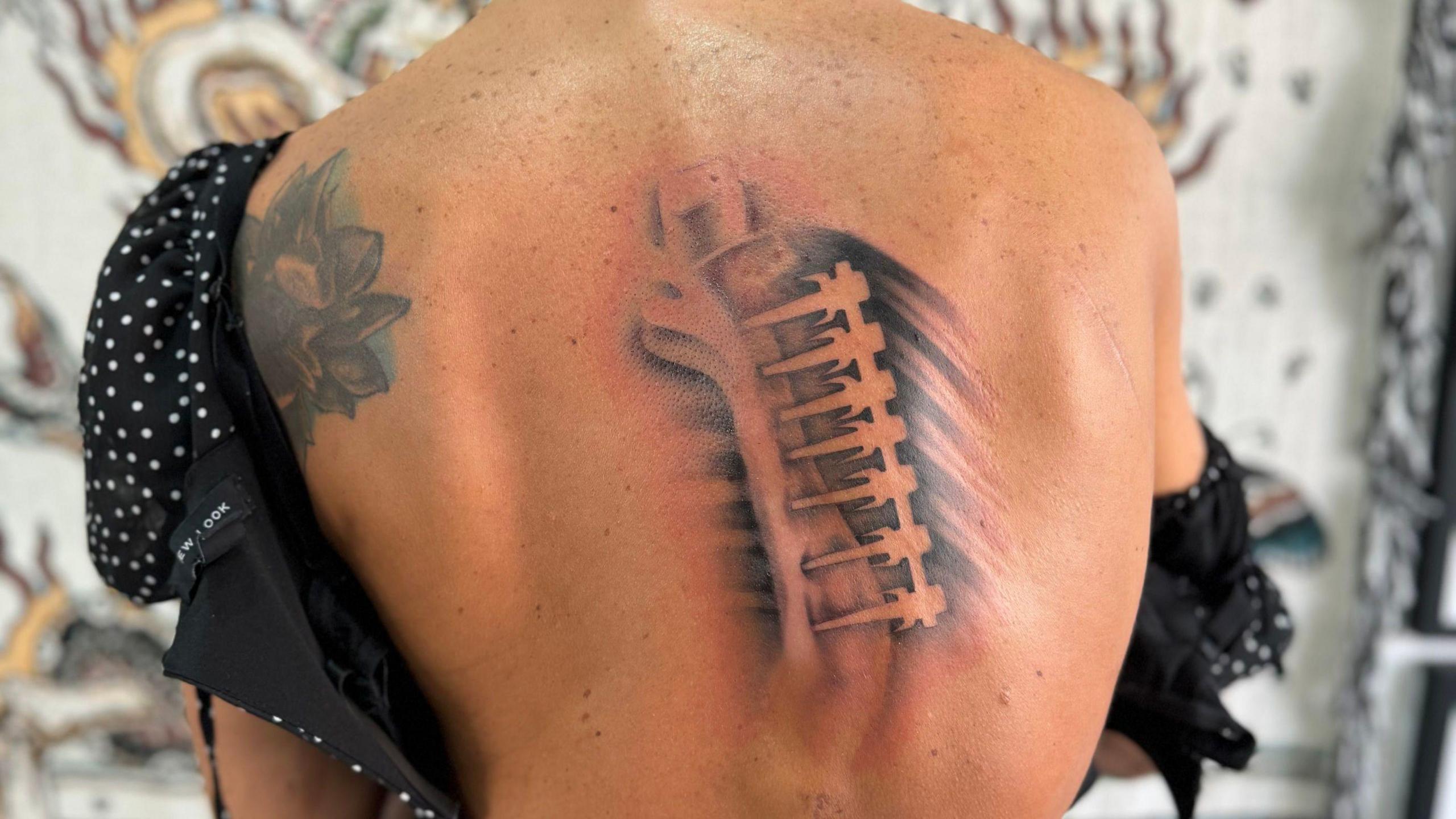
- Published14 October 2023

- Published21 November 2017
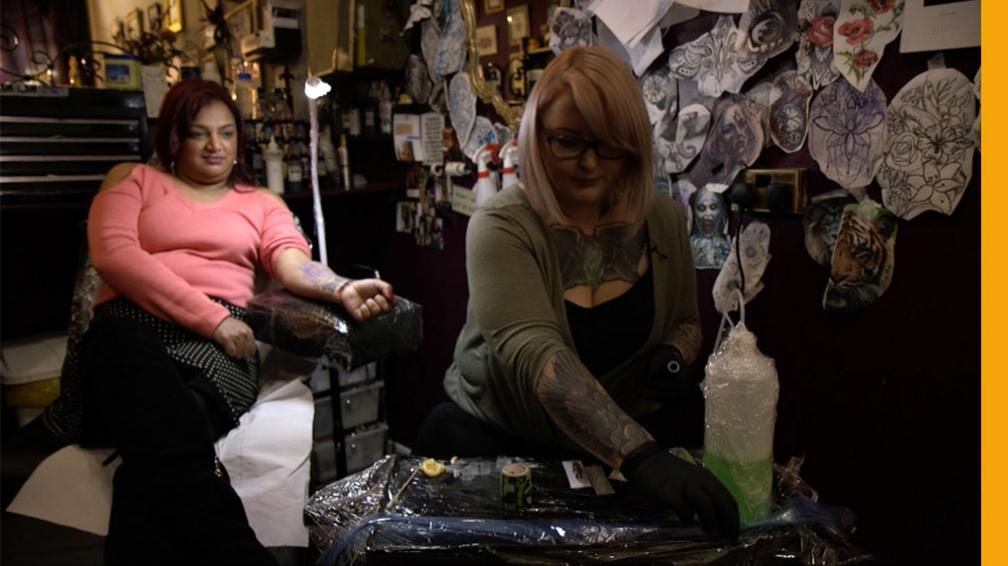
- Published14 October 2021
